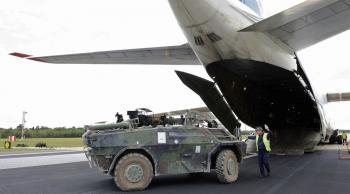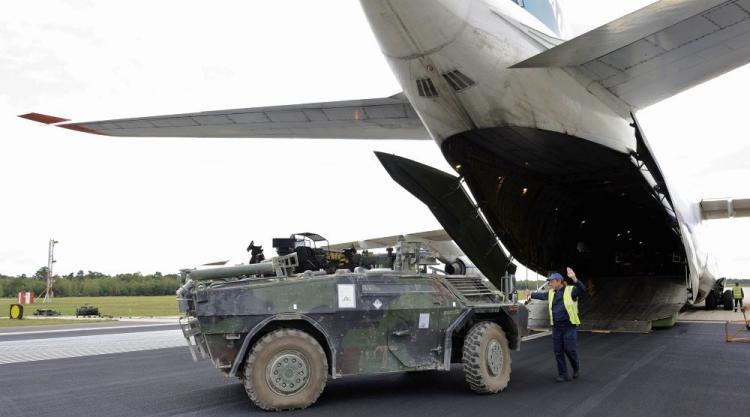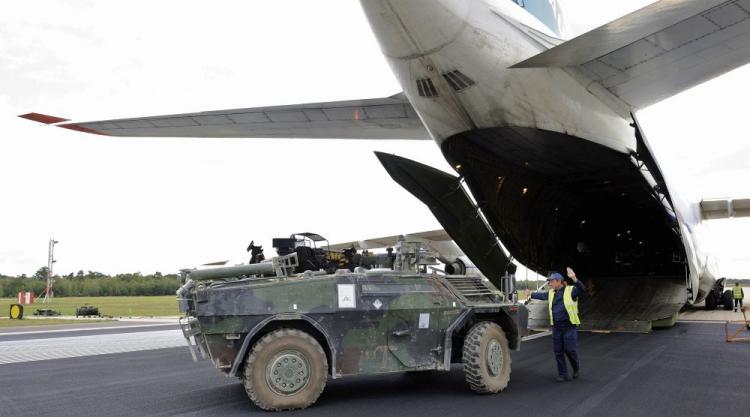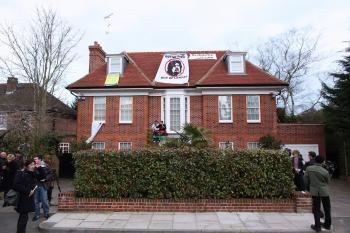The Netherlands will once again send forces to Afghanistan to help NATO’s police training mission, the minority Cabinet in Amsterdam announced in a letter to Parliament Friday.
Last February, NATO’s request to extend the Netherlands’s mission in Afghanistan led to the collapse of the Dutch government.
From 2011 to 2014, 545 persons will be deployed to Afghanistan to help develop the country’s civilian police force and justice department. The mission will not include offensive military activities. The mission, to be carried out in the areas of Kabul, Kunduz, and Mazare Sharif, is part of the European Union Police Mission in Afghanistan, and NATO’s police training mission.
The Netherlands’s Cabinet letter met with some opposition in Parliament. The leader of the Party For Freedom (PVV), Geert Wilders, said, “The PVV does not support that decision at all,” according to Dutch newspaper Trouw. Wilders said the Netherlands has done more than enough. The current minority Cabinet, composed of the Dutch liberal People’s Party for Freedom and Democracy (VVD) and the center-right Christian Democratic Appeal (CDA), came into being with PVV support.
For four years starting in 2006, the Netherlands was the lead nation of NATO’s International Security Assistance Force (ISAF) in Uruzgan, Afghanistan. From the beginning, the mission triggered political debate over whether its mission was to rebuild or fight. In beginning of 2010, a request from NATO to extend the mission led to more heavy controversy and the ultimate fall of the government.
Labor Party (PVDA) leader at that time, Wouter Bos, told the press that his party would pull out of the Cabinet because of an “irreconcilable difference in views on [the Netherlands’s] military contribution in Afghanistan.”
As the main opposition, the Labor Party remains unsupportive of the training mission, saying it supports the rebuilding of Afghan society. According to the Trouw report, the Labor Party will only support the training of civilian police officers. The party says that it suspects NATO will train Afghan police for battle against the Taliban.
In addition to 225 trainers and support personnel, the Cabinet letter says that four F16 fighter planes and ground personnel will be deployed to search for explosives and in acute emergencies, will protect Afghan and international units. The trainers will focus on the Afghan uniformed police (AUP), the section of the Afghan police that is closest to the population.
The remaining parties in Parliament want disclosure on the exact nature of the military support. The liberal-leaning Democrats 66 Party and the GreenLeft Party asked for clarification about EU and NATO relations in the mission and expressed concern over the effectiveness of the mission due to safety considerations. Technically, majority support in the Cabinet is not necessary for the mission to be carried out, but it is customary to get as much support as possible.
Ever since the Netherlands handed over the Uruzgan mission, it has been the only NATO member not to have forces present in Afghanistan. The country has been under pressure to rejoin, with President Obama insisting several times that the Netherlands reconsider its position.
Last February, NATO’s request to extend the Netherlands’s mission in Afghanistan led to the collapse of the Dutch government.
From 2011 to 2014, 545 persons will be deployed to Afghanistan to help develop the country’s civilian police force and justice department. The mission will not include offensive military activities. The mission, to be carried out in the areas of Kabul, Kunduz, and Mazare Sharif, is part of the European Union Police Mission in Afghanistan, and NATO’s police training mission.
The Netherlands’s Cabinet letter met with some opposition in Parliament. The leader of the Party For Freedom (PVV), Geert Wilders, said, “The PVV does not support that decision at all,” according to Dutch newspaper Trouw. Wilders said the Netherlands has done more than enough. The current minority Cabinet, composed of the Dutch liberal People’s Party for Freedom and Democracy (VVD) and the center-right Christian Democratic Appeal (CDA), came into being with PVV support.
For four years starting in 2006, the Netherlands was the lead nation of NATO’s International Security Assistance Force (ISAF) in Uruzgan, Afghanistan. From the beginning, the mission triggered political debate over whether its mission was to rebuild or fight. In beginning of 2010, a request from NATO to extend the mission led to more heavy controversy and the ultimate fall of the government.
Labor Party (PVDA) leader at that time, Wouter Bos, told the press that his party would pull out of the Cabinet because of an “irreconcilable difference in views on [the Netherlands’s] military contribution in Afghanistan.”
As the main opposition, the Labor Party remains unsupportive of the training mission, saying it supports the rebuilding of Afghan society. According to the Trouw report, the Labor Party will only support the training of civilian police officers. The party says that it suspects NATO will train Afghan police for battle against the Taliban.
In addition to 225 trainers and support personnel, the Cabinet letter says that four F16 fighter planes and ground personnel will be deployed to search for explosives and in acute emergencies, will protect Afghan and international units. The trainers will focus on the Afghan uniformed police (AUP), the section of the Afghan police that is closest to the population.
The remaining parties in Parliament want disclosure on the exact nature of the military support. The liberal-leaning Democrats 66 Party and the GreenLeft Party asked for clarification about EU and NATO relations in the mission and expressed concern over the effectiveness of the mission due to safety considerations. Technically, majority support in the Cabinet is not necessary for the mission to be carried out, but it is customary to get as much support as possible.
Ever since the Netherlands handed over the Uruzgan mission, it has been the only NATO member not to have forces present in Afghanistan. The country has been under pressure to rejoin, with President Obama insisting several times that the Netherlands reconsider its position.




